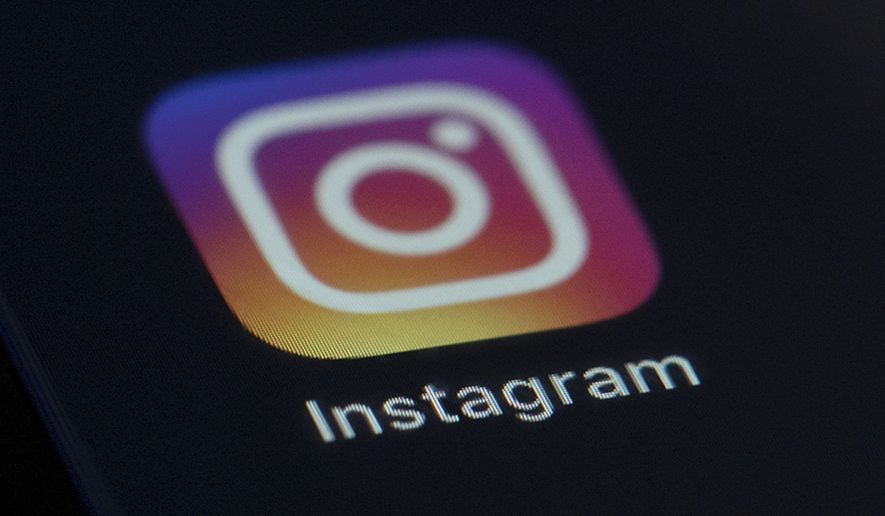While Instagram prepared to defend itself at a Wednesday Senate hearing by announcing new child-safety measures, the libertarian-minded TechFreedom argued that parents are the ones who need to step up.
Ari Cohn, free speech counsel at TechFreedom, said he views the bipartisan anger aimed at Instagram and other social-media firms as similar to previous moral panics over comic books, movies, rock music, and other media.
“We’ve seen over the course of history this is nothing new,” said Mr. Cohn. “There’s a Tipper Gore in every generation.”
On Wednesday. Instagram CEO Adam Mosseri and lawmakers on a Senate Commerce Committee panel will debate Instagram’s functions and features, and discuss federal lawmakers’ accusations that the company’s product harms children.
In September 1985, the same consumer protection, product safety, and data security subcommittee heard testimony from Mrs. Gore, who argued for record companies to put warning labels on music deemed “inappropriate for younger children.”
Mrs. Gore, wife of then-Sen. Al Gore, told the committee her labeling proposal was “not censorship.”
Thirty-six years later, that panel is preparing to question Mr. Mosseri in the latest of a series of hearings about “protecting kids online” that has previously featured testimony from executives at social media platforms such as Facebook, Snapchat, and TikTok.
Lawmakers are once again grappling with questions about censorship and free speech as they weigh what to do about their concerns that the platforms can damage children’s emotional wellbeing and mental health.
Mr. Cohn thinks the ongoing hearings with tech executives are fundamentally flawed.
He said he supports tech companies letting parents get more information but is skeptical of government intervention into an area involving free expression.
“I’m all in favor of these platforms giving parents easier ways to monitor what their kids are doing and are saying and how their kids use it, because that’s where the ultimate responsibility should be,” Mr. Cohn said.
“If parents don’t want their kids using a platform or don’t want them using it in a certain way, parents need to step up like parents also need to not buy their kids violent video games if they don’t want their kids playing violent video games,” he said.
Mr. Mosseri announced Tuesday that his company would adopt a “stricter approach” regarding the recommendations it makes to teenagers on its app and he said the company would launch new tools next year for parents and guardians to get more involved in their kids’ usage of Instagram.
The announcement on the eve of the hearing has done little to eliminate the fury of lawmakers and critics of the social media platforms, who have in earlier Senate hearings compared big tech to the tobacco companies.
Sen. Richard Blumenthal, the Connecticut Democrat who chairs the panel questioning Mr. Mosseri on Wednesday, has made clear he does not think parents should be the only ones making choices about how their children use social media.
“The parents of America cannot trust these apps with their children,” said Mr. Blumenthal at a hearing in October. “Big Tech cannot say to parents, ‘You must be the gatekeepers. You must be the social-media co-pilots. You must be the app police.’ Because parents should not have to bear that burden alone.”
Arguing that parents should be responsible for children’s use of Instagram is not popular on Capitol Hill. Lawmakers and activists alike are vocal and furious with the social media platform.
A coalition of liberal advocacy groups including UltraViolet and ParentsTogether said Tuesday they arranged for an “Instagrinch,” a character known for wrecking the Christmas holiday, to appear outside the Capitol and place children’s gifts labeled “eating disorders,” “sexual predators,” and “bullying” under a Christmas tree.
The groups said their message ahead of the hearing with Instagram’s CEO would be displayed on posters reading “Instagrinch — don’t get our kids eating disorders for Christmas.”
Instagram is arguing that its new steps will give parents guidance to choose what’s right for their children.
“Parents and guardians know what’s best for their teens, so we plan to launch our first tools in March to help them guide and support their teens on Instagram,” said Mr. Mosseri in a blog post on his company’s website.
Instagram’s previous efforts at shaping children’s experiences have gone poorly.
In September, the company paused its development of ‘Instagram Kids,’ a version of the platform under development to target children under age 13, amid public criticism.
• Ryan Lovelace can be reached at rlovelace@washingtontimes.com.




Please read our comment policy before commenting.